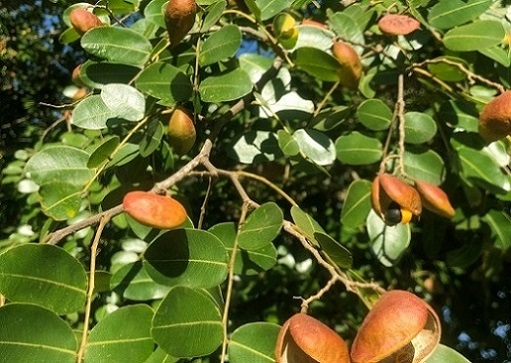The Phytochemical Kaurenoic Acid from Plants of the Copaifera Genus Shows Powerful Antiviral Action Against SARS-CoV-2
Nikhil Prasad Fact checked by:Thailand Medical News Team May 11, 2025 9 months, 2 days, 22 hours, 54 minutes ago
Medical News: New Hope in Nature a Natural Compound That Slows COVID-19 Virus
Researchers from multiple leading institutions have made an exciting discovery—kaurenoic acid, a natural compound extracted from plants of the Copaifera genus, shows potent antiviral activity against SARS-CoV-2, the virus that causes COVID-19. This breakthrough could open the door to new treatments, especially for tackling virus variants that keep emerging despite vaccination efforts.
 The Phytochemical Kaurenoic Acid from Plants of the Copaifera Genus Shows Powerful
The Phytochemical Kaurenoic Acid from Plants of the Copaifera Genus Shows Powerful
Antiviral Action Against SARS-CoV-2
The study was conducted by scientists from the Federal University of Uberlândia and the Institute of Biotechnology in Brazil, the University of São Paulo, São Paulo State University, the University of Franca, and from international collaborators at the University of Leeds in the United Kingdom and the University of Tartu in Estonia.
In this
Medical News report, the researchers explored kaurenoic acid’s (KA) effects in lab settings. They tested it against several versions of the virus, including the original Wuhan strain, the Delta variant, and the Omicron variant. The results were clear—KA could block the virus from replicating, assembling into new viral particles, and spreading further.
How the Compound Works
Kaurenoic acid does not prevent the virus from entering human cells. Instead, it acts after the virus gets inside, shutting down its ability to make copies of itself and form new viral particles. Scientists describe this as affecting the “post-entry” stage of the virus life cycle. Lab tests showed that KA was able to reduce viral replication by over 90 percent, a result nearly equal to the FDA-approved antiviral drug Molnupiravir.
Importantly, KA also reduced the release of virus particles into surrounding cells, which is a key process in how the infection spreads inside the body. Tests done in different cell types—including lung cells and kidney cells engineered to mimic human infection—demonstrated consistent success without harming the cells.
Works on Delta and Omicron Variants Too
KA was also tested against chimeric lab-created viruses carrying spike proteins from both the Delta and Omicron variants. These are among the most contagious and dangerous forms of the virus seen so far. The tests showed that KA could significantly suppress viral activity from both strains. Interestingly, its effect on the Delta variant was stronger in some conditions when tested using actual virus samples rather than synthetic constructs.
Targets the Virus’s Core Machinery
To understand how KA disrupts the virus, the researchers used advanced computer modeling. They found that the compound attaches itself to two critical proteins the virus uses: PLpro and Mpro. These proteins help the virus cut itself into usable parts and assemble
new copies. By binding to these, KA effectively jams the virus’s internal machinery.
This mechanism is especially promising because these proteins don’t change much, even in new virus variants. That means KA could remain effective even as the virus continues to mutate.
Safe and Natural
KA has a good safety profile. It comes from natural plant sources and has already been studied for its anti-inflammatory, anti-tumor, antibacterial, and antifungal effects. Past research in animals has shown that the compound is stable in the body and spreads well through various tissues, making it suitable for oral or injectable use.
It also appears to reduce inflammation by affecting immune pathways—another potential benefit for people suffering from severe COVID-19 or long COVID.
Promising Conclusions
The findings of this study show that kaurenoic acid is a powerful natural inhibitor of the COVID-19 virus, especially effective at shutting down its ability to replicate and release new virus particles. Unlike many current drugs, KA seems to remain effective against both older and newer variants. The fact that it is derived from plants and shows minimal toxicity makes it a strong candidate for further development. Future clinical trials are necessary, but the groundwork laid here is a strong sign that KA could be turned into a new, safer antiviral treatment for COVID-19.
The study findings were published in the peer reviewed journal: Frontiers in Microbiology.
https://www.frontiersin.org/journals/microbiology/articles/10.3389/fmicb.2025.1540934/full
For the latest COVID-19 News, keep on logging to Thailand
Medical News.
Read Also:
https://www.thailandmedical.news/news/french-study-finds-that-phytochemicals-from-asparagus-can-block-covid-19-virus-entry-into-cells
https://www.thailandmedical.news/news/the-phytochemical-daphnetin-can-protect-against-covid-19-by-downregulating-ace2-expression
https://www.thailandmedical.news/news/flavonoid-glycosides-from-the-herb-viola-stocksii-shows-promising-therapeutic-properties-against-sars-cov-2-variants
https://www.thailandmedical.news/articles/herbs-and-phytochemicals
https://www.thailandmedical.news/articles/covid-19-herbs
https://www.thailandmedical.news/pages/thailand_doctors_listings
